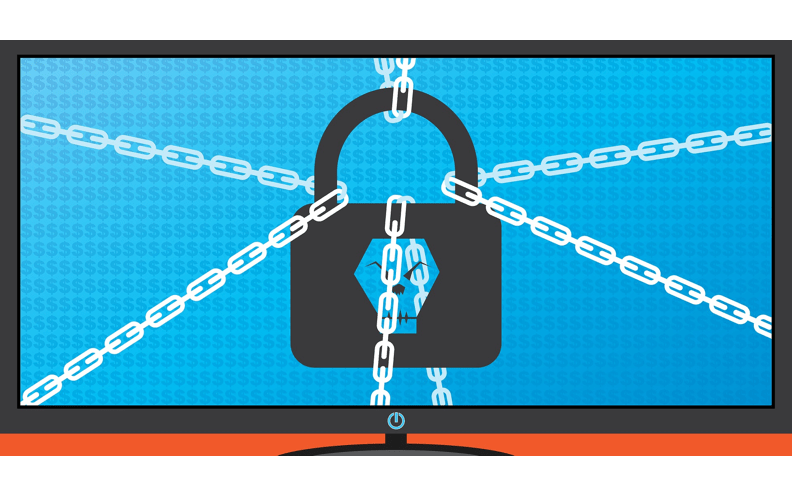REvil Ransomware Gang Starts Auctioning Victim Data

The criminal group behind the REvil ransomware enterprise has begun auctioning off sensitive data stolen from companies hit by its malicious software. The move marks an escalation in tactics aimed at coercing victims to pay up — and publicly shaming those who don’t. But it may also signal that ransomware purveyors are searching for new ways to profit from their crimes as victim businesses struggle just to keep the lights on during the unprecedented economic slowdown caused by the COVID-19 pandemic.
Over the past 24 hours, the crooks responsible for spreading the ransom malware “REvil” (a.k.a. “Sodin” and “Sodinokibi“) used their Dark Web “Happy Blog” to announce its first ever stolen data auction, allegedly selling files taken from a Canadian agricultural production company that REvil says has so far declined its extortion demands.
The victim firm’s auction page says a successful bidder will get three databases and more than 22,000 files stolen from the agricultural company. It sets the minimum deposit at $5,000 in virtual currency, with the starting price of $50,000.
Prior to this auction, REvil — like many other ransomware gangs — has sought to pressure victim companies into paying up mainly by publishing a handful of sensitive files stolen from their extortion targets, and threatening to release more data unless and until the ransom demand is met.
Experts say the auction is a sign that ransomware groups may be feeling the financial pinch from the current economic crisis, and are looking for new ways to extract value from victims who are now less likely or able to pay a ransom demand.
Lawrence Abrams, editor of the computer help and news Web site BleepingComputer, said while some ransomware groups have a history of selling victim data on cybercrime forums, this latest move by REvil may be just another tactic used by criminals to force victims to negotiate a ransom payment.
“The problem is a lot of victim companies just don’t have the money [to pay ransom demands] right now,” Abrams said. “Others have gotten the message about the need for good backups, and probably don’t need to pay. But maybe if the victim is seeing their data being actively bid on, they may be more inclined to pay the ransom.”
There is some evidence to suggest that the recent economic downturn wrought by COVID-19 has had a measurable impact on ransomware payouts. A report published in mid-April by cryptocurrency research firm Chainalysis found that ransomware payments “have decreased significantly since the COVID-19 crisis intensified in the U.S. and Europe in early March.”
Abrams said other ransomware groups have settled on different methods to increase victim payouts, noting that one prominent gang is now doubly extorting targets — demanding one payment amount in return for a digital key that can unlock files scrambled by the malware, and another payment in exchange for a promise to permanently delete data stolen from the victim.
The implied threat is that victims who pay to recover their files but don’t bite on the deletion payment can expect to see their private data traded, published or sold on the Dark Web.
“Some of these [extortion groups] have said if they don’t get paid they’re going to sell the victim’s data on the Dark Web, in order to recoup their costs,” Abrams said. “Others are now charging a few not only for the ransomware decryptor, but also a fee to delete the victim’s data. So it’s a double vig.”
The FBI and multiple security firms have advised victims not to pay any ransom demands, as doing so just encourages the attackers and in any case may not result in actually regaining access to encrypted files. In practice, however, many cybersecurity consulting firms are quietly urging their customers that paying up is the fastest route back to business-as-usual.
Here are a few tips that can help reduce the likelihood that you or your organization will fall victim to a ransomware attack:
-Patch, early and often: Many ransomware attacks leverage known security flaws in servers and desktops.
-Disable RDP: Short for Remote Desktop Protocol, this feature of Windows allows a system to be remotely administered over the Internet. A ridiculous number of businesses — particularly healthcare providers — get hit with ransomware because they leave RDP open to the Internet and secured with easy-to-guess passwords. And there are a number of criminal services that sell access to brute-forced RDP installations.
-Filter all email: Invest in security systems that can block executable files at the email gateway.
-Isolate mission-critical systems and data: This can be harder than it sounds. It may be worth hiring a competent security firm to make sure this is done right.
-Backup key files and databases: Bear in mind that ransomware can encrypt any network or cloud-based files or folders that are mapped and have been assigned a drive letter. Backing up to a secondary system that is not assigned a drive letter or is disconnected when it’s not backing up data is key. The old “3-2-1” backup rule comes into play here: Wherever possible, keep three backups of your data, on two different storage types, with at least one backup offsite.
-Disable macros in Microsoft Office: Block external content in Office files. Educate users that ransomware very often succeeds only when a user opens Office file attachment sent via email and manually enables Macros.
-Enable controlled folder access: Create rules to disallow the running of executable files in Windows from local user profile folders (App Data, Local App Data, ProgramData, Temp, etc.)
Sites like nomoreransom.org distribute free decryptor tools that can help some ransomware victims recover files without paying a ransom demand.
Source: https://krebsonsecurity.com/2020/06/revil-ransomware-gang-starts-auctioning-victim-data/
Photo: https://brownglock.com/library/2020/06/03/revil-ransomware-gang-starts-auctioning-victim-data/




